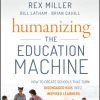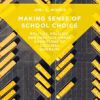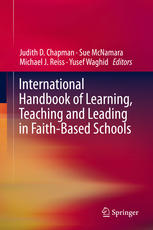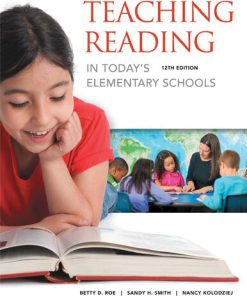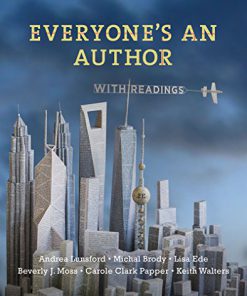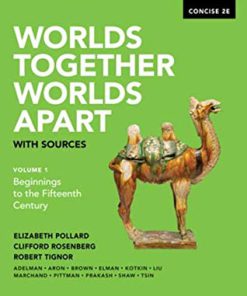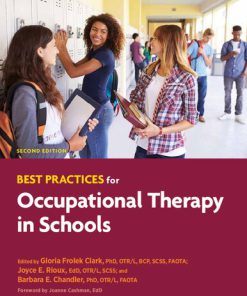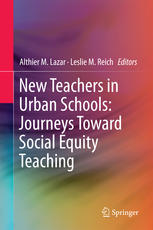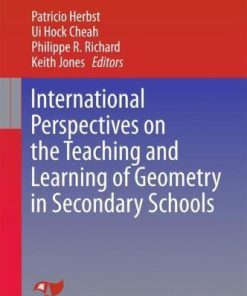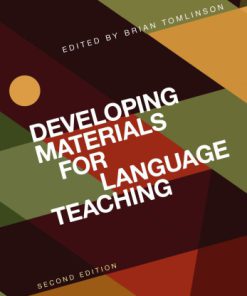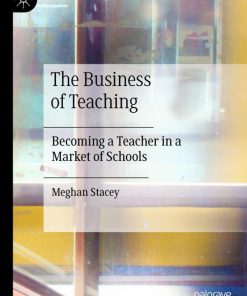Readings for Reflective Teaching in Schools 2nd Edition by Andrew Pollard, Amy Pollard ISBN 1472509749 9781472509741
$50.00 Original price was: $50.00.$25.00Current price is: $25.00.
Readings for Reflective Teaching in Schools 2nd Edition by Andrew Pollard, Amy Pollard – Ebook PDF Instant Download/Delivery: 1472509749, 978-1472509741
Full download Readings for Reflective Teaching in Schools 2nd Edition after payment
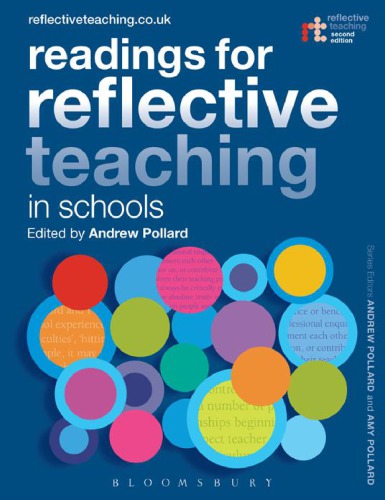
Product details:
ISBN 10: 1472509749
ISBN 13: 978-1472509741
Author: Andrew Pollard, Amy Pollard
Readings for Reflective Teaching in Schools provides a portable library of over a hundred readings to support teacher education and professional development. Extensively updated since earlier editions, new readings concisely introduce much of the best of classic and contemporary international research on teaching and learning. The selection reflects current issues and concerns in education and has been designed to support school-led teacher education and a wide range of school-university partnership arrangements.
This collection of readings is edited by Andrew Pollard, former Director of the UK’s Teaching and Learning Research Programme, with the advice of primary and secondary specialists from the University of Cambridge.
Readings for Reflective Teaching in Schools is part of a set of professional resources. It links directly to the textbook, Reflective Teaching in Schools, and to the website, reflectiveteaching.co.uk. A fully integrated and complementary range of resources is thus offered for both primary and secondary schools.
Reflective Teaching in Schools focuses on how to achieve high-quality teaching and learning. It presents key issues and research insights, suggests reflective activities for classroom enquiry, and offers guidance on further study. By design, it offers both practical support for effective classroom practice and routes towards deeper forms of expertise. It has supported teachers’ professional development in the UK and beyond for over 25 years.
The website, reflectiveteaching.co.uk, offers supplementary resources including reflective activities, research briefings, advice on further reading and additional chapters. It also features a glossary of educational terms, links to useful websites, and a conceptual framework for deepening expertise.
This book is one of the Reflective Teaching Series – inspiring education through innovation in early years, schools, further, higher and adult education.
Readings for Reflective Teaching in Schools 2nd Table of contents:
Part one: Becoming a reflective professional Identity – Who are we, and what do we stand for?
-
Qing Gu: Being a teacher in times of change
-
Andrew Pollard and Ann Filer: Being a learner through years of schooling
-
Jean Rudduck and Julia Flutter: How pupils want to learn
-
Mandy Swann, Alison Peacock, Susan Hart and Mary Jane Drummond: Learning without limits
-
Phil Jones: Assumptions about children and young people
-
Leon Feinstein, John Vorhaus and Ricardo Sabates: The wider benefits of learning
Learning – How can we understand learner development?
-
Burrhus Skinner: The science of learning and the art of teaching
-
Jean Piaget: The genetic approach to the psychology of thought
-
Lev Vygotsky: Mind in society and the Zone of Proximal Development
-
Gordon Wells: Learning, development and schooling
-
The Royal Society: Neuroscience and education
-
Carol Dweck: Motivational processes affecting learning
-
Robert Fisher: Why thinking should be taught
-
Mary James: Learning how to learn
-
Guy Claxton: Learning and the development of resilience
-
Alan Thomas and Harriet Pattison: Informal learning
Reflection – How can we develop the quality of our teaching?
-
John Dewey: Thinking and reflective experience
-
Donald Schon: Reflection-in-action
-
Lawrence Stenhouse: The teacher as researcher
-
Richard Pring: Action research and the development of practice
-
James Calderhead: Competence and the complexities of teaching
-
Ruth Heilbronn: Practical judgement and evidence-informed practice
-
Heather Hodkinson and Phil Hodkinson: Learning in communities of practice
Principles – What are the foundations of effective teaching and learning?
-
John Bransford, Ann Brown and Rodney Cocking: Brain, mind, experience and school: A US review
-
David Hogan, Phillip Towndrow, Dennis Kwek, Ridzuan Rahim, Melvin Chan and Serena Luo: A tale of two pedagogies: Teaching and learning in Singapore
-
Pasi Sahlberg: What the world can learn from educational change in Finland
-
Hanna Dumont, David Istance and Francisco Benavides: The nature of learning: An OECD stocktake
-
Naomi Rowe, Anne Wilkin and Rebekah Wilson: ‘Good teaching’: A UK review
-
John Hattie: Visible learning: A global synthesis
Part two: Creating conditions for learning Contexts – What is, and what might be?
-
C. Wright Mills: The sociological imagination
-
Andy Green and Jan Janmaat: Regimes of social cohesion
-
Stephen Ball: Schooling, social class and privilege
-
Department for Children, Schools and Families (DCSF): Disadvantage and low attainment
-
General Teaching Council for England (GTC E): Accountability in teaching
Relationships – How are we getting on together?
-
Philip Jackson: Life in classrooms
-
Mary Helen Immordino-Yang and Antonio Damasio: We feel, therefore we learn
-
Andrew Pollard: Teachers, pupils and the working consensus
-
Roland Chaplain: Classroom rules, routines and rituals
-
Caroline Gipps and Barbara MacGilchrist: Teacher expectations and pupil achievement
-
Dennis Lawrence: What is self-esteem?
Engagement – How are we managing behaviour?
-
Walter Doyle: Learning the classroom environment
-
Chris Watkins: The big picture on behaviour
-
Tom Bennett: Virtues of great teachers: Justice, courage, patience, wisdom and compassion
-
Sue Cowley: Ten strategies for managing behaviour
-
Jacob Kounin: Discipline and group management in classrooms
-
Frank Merrett and Kevin Wheldall: Positive teaching in the classroom
Spaces – How are we creating environments for learning?
-
Urie Bronfenbrenner: Environments as contexts for development
-
John Bransford, Ann Brown and Rodney Cocking: Designs for learning environments
-
David Clegg and Shirley Billington: Classroom layout, resources and display
-
David Berliner: Instructional time – and where it goes
-
Anthony Edwards: Environment, affordance and new technology
-
Guther Kress: The profound shift of digital literacies
-
Daniel Muijs and David Reynolds: Direct and interactive whole-class instruction
Part three: Teaching for learning Curriculum – What is to be taught and learned?
-
Brian Male and Mick Waters: Designing the school curriculum
-
Michael Young: Powerful knowledge
-
John Wilson: Teaching a subject
-
Central Advisory Council for England: Aspects of children’s learning
-
Jerome Bruner: The spiral curriculum
-
Lorna Unwin: Vocational education matters
-
Lee Shulman: A perspective on teacher knowledge
Planning – How are we implementing the curriculum?
-
Her Majesty’s Inspectors (HMI): Characteristics of the curriculum
-
Partnership Management Board of Northern Ireland: Implementing a revised curriculum
-
Rosie Turner-Bissett: Constructing an integrated curriculum
-
Louise Thomas: An area-based curriculum
-
Welsh Assembly Government: Skills for 3 to 19-year-olds
-
Anthony Haynes: Progression and differentiation
-
Teaching and Learning in 2020 Review Group: Personalised pedagogies for the future
Pedagogy – How can we develop effective strategies?
-
Jerome Bruner: Folk pedagogy
-
The General Teaching Council for England: What is pedagogy and why is it important?
-
Brian Simon: Why no pedagogy in England?
-
Roland Tharp and Ronald Gallimore: Teaching as the assistance of performance
-
Max van Manen: Student experience of pedagogy
-
Neil Mercer and Karen Littleton: Talking and thinking together
Communication – How does language support learning?
-
Martin Nystrand: Engaging students, through taking them seriously
-
Elizabeth Perrot: Using questions in classroom discussion
-
Robin Alexander: The nature of pedagogic repertoire
-
Colin Harrison: Why is reading so important?
-
Myra Barrs and Valerie Cork: Reading, listening, discussing and writing
-
Carl Bereiter and Marlene Scardamalia: From ‘knowledge telling’ to ‘knowledge transforming’
-
Adrian Blackledge: Language, culture and story in the bilingual school
Assessment – How can assessment enhance learning?
-
Wynne Harlen, Caroline Gipps, Patricia Broadfoot and Desmond Nuttall: Assessment purposes and principles
-
Assessment Reform Group: Assessment for learning
-
David Spendlove: Feedback and learning
-
Yolande Muschamp: Pupil self-assessment
-
Sue Swaffield: Authentic assessment for learning
-
Gordon Stobart: Creating learner identities through assessment
Part four: Reflecting on consequences Outcomes – How do we monitor student learning achievements?
-
Patricia Broadfoot: Assessment: Why, who, when, what and how?
-
The Scottish Government: Principles of assessment in the Curriculum for Excellence
-
Graham Butt: Target setting in schools
-
Office for Standards in Education: Using data to improve school performance
-
Warwick Mansell, Mary James and the Assessment Reform Group: The reliability, validity and impact of assessment
-
Linda Sturman: Making best use of international comparison data
-
Ann Filer and Andrew Pollard: The myth of objective assessment
Inclusion – How are we enabling opportunities?
-
Robin Richardson: Principles underlying UK legislation for equality and diversity
-
Andrew Pollard: Social differentiation in schools
-
Gary Thomas and Andrew Loxley: Difference or deviance?
-
Sue Hallam: Ability grouping in schools: A literature review
-
Barrie Thorne: How to promote cooperative relationships among children
-
Ruth Kershner: Learning in inclusive classrooms
Part five: Deepening understanding Expertise – Conceptual tools for career-long fascination?
-
Pat Collarbone: Contemporary change and professional development
-
Andy Hargreaves: Contemporary change and professional inertia
-
Tony Eaude: The development of teacher expertise
-
Dylan Wiliam: Improving teacher expertise
-
John Hattie: Mind frames for visible learning
-
Helen Timperley, Aaron Wilson, Heather Barrar and Irene Fung: Teacher professional learning and development
Professionalism – How does reflective teaching contribute to society?
-
Margaret Archer: Thinking about educational systems
-
Ian Menter, Moira Hulme, Dely Eliot and Jon Lewin: Teacher education and professionalism
-
General Teaching Council for Northern Ireland (GTC NI): Teaching: The reflective profession
-
Pasi Sahlberg, John Furlong and Pamela Munn: Combining research and practice in teaching
-
Sally Power: The imaginative professional
-
Council of Europe: Teaching and learning about human rights in schools
-
Richard Bowe and Stephen Ball, with Ann Gold: Three contexts of policymaking
People also search for Readings for Reflective Teaching in Schools 2nd:
readings for reflective teaching in early education
what is reflective level of teaching
types of reflective reading
reflective teaching examples
examples of reflective teaching
Tags:
Andrew Pollard,Amy Pollard,Readings,Reflective,Teaching,Schools 2nd
You may also like…
Education Studies & Teaching
Education Studies & Teaching - School Education & Teaching
Teaching Reading in Today’s Elementary Schools, 12th Edition Betty Roe
Reference - Writing
Everyone s an Author with Readings Second Edition Andrea Lunsford
History - World History
Worlds Together Worlds Apart with Sources Concise Second Edition Vol 1 Elizabeth Pollard
Uncategorized
Best Practices for Occupational Therapy in Schools Second Edition. Edition Gloria Frolek Clark
Education Studies & Teaching
Education Studies & Teaching - School Education & Teaching
Politics & Philosophy - Social Sciences
Developing materials for language teaching Second Edition Tomlinson
Education Studies & Teaching - School Education & Teaching
The Business of Teaching: Becoming a Teacher in a Market of Schools Meghan Stacey


